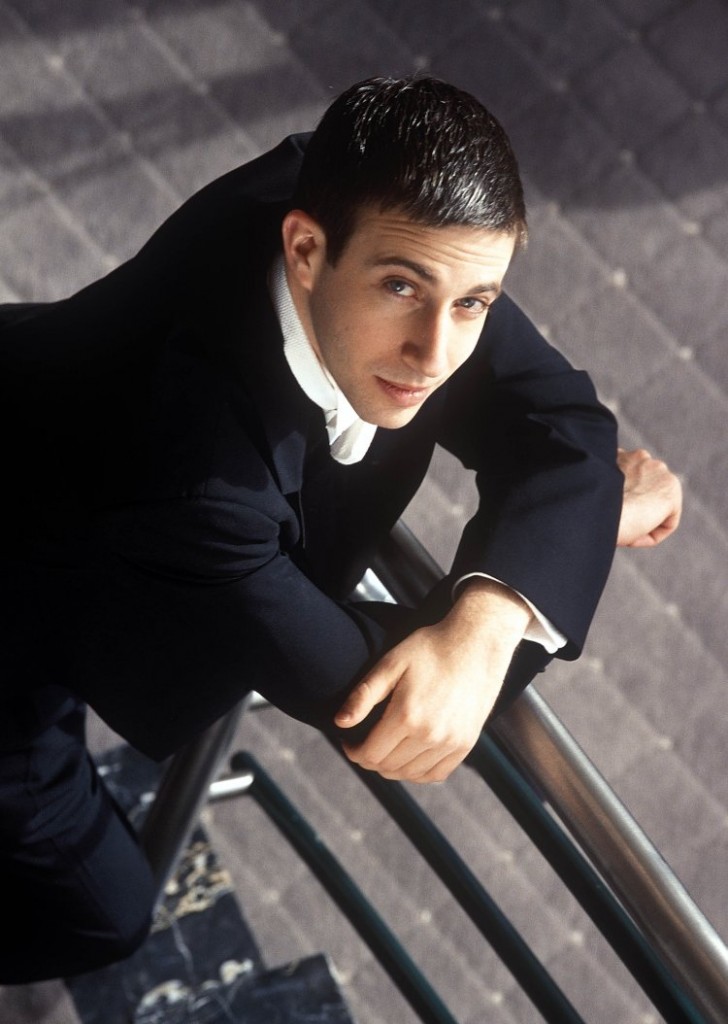Hochman’s Longy recital does justice to Knussen and Rzewski

Benjamin Hochman performed works by Brahms, Knussen, and Rzewski Wednesday night at Longy Conservatory. Photo: J. Henry Fair
Much of Benjamin Hochman’s reputation as a pianist stems from his work as a chamber musician. Though still young, he has already performed with the Lincoln Center Chamber Music Society, and the Tokyo, Orion, and Daedalus string quartets. Recently, the Israeli-born pianist has launched a fruitful solo career with an expansive repertoire. His two solo recordings, for instance, explore the similarities in the music of Bach, Berg, and Webern, as well as Schubert and György Kurtág.
His debut recital at Longy Conservatory’s Pickman Hall Wednesday night as a new faculty member, showcased Hochman’s wide range, in this case, three sets of variations by Brahms, Frederic Rzewski, and Oliver Knussen.
The strength of Hochman’s playing lies in his shapely phrasing and fluid touch that gives his technique more of a poetic grace than sparkling clarity.
His smooth approach was immediately apparent in the opener, Knussen’s Variations for Piano, Op. 24 (1989). The meandering and fitful chromatic lines that make up these twelve variations grow from a six-note flourish. Its organic and dissonant style puts one in mind of Copland’s Piano Variations. With his overall sensitive approach, Hochman gave this contemplative music the feeling of improvisation. He pulled ghostly sonorities from the extreme registers in the passacaglia, and the many cascading passages were awash with silky tone.
Brahms’ Variations and Fugue on a Theme by Handel, Op. 24, which followed, showcased the pianist’s dexterous phrasing. Completed in 1861, these twenty-five variations and fugue are spun from the simple aria found in the third movement of Handel’s Harpsichord Suite in B-flat.
With delicate touch, Hochman brought out the Baroque elements that make up so much of the work’s character. Bass lines leapt and bounced while the right-hand trills moved overhead with fluid motion. The Musette twinkled, the weaving and churning phrases of the concluding fugue rippled along with precision, and the gentle turns and stately tempo gave the nineteenth variation the airs and graces of a Baroque dance.
Missing from this reading, though, was the wide expressive range and crisp technical polish to suit the fiery and romantic strains in these variations. The furious stream of notes in the fourth variation felt labored and lacked their syncopated punch. The triplets of the twenty-third, taken at a safe and deliberate pace, seemed to march in place. Even the thick chromatic movements had more Handelian finesse than the meaty presence of Brahms.
Yet the recital’s closer, Rzewski’s The People United Will Never Be Defeated!, featured Hochman in sensitive and radiant playing all around.
The Chilean song that serves as the basis for this barnstorming colossus has become an international symbol for leftist political movements over the past forty years. In 1975, the politically conscious Rzewski explored the jaunty tune in thirty-six variations, which, when played together, run close to an hour. Its potpourri of styles contains episodes of spare pointillism, movements of dense, kaleidoscopic harmonies, and passages of raw virtuosic power. Throughout, the tune reasserts itself in bold, brief statements and ghostly whispers. The pianist is even called upon to whistle remnants of the song over soft echoes.
Hochman, in command of the piece’s wide stylistic range, gave a strong account. He performed the most dazzling variations (Nos. 19-24) with crispness. The rocking riffs that pepper the latter pages of Rzewski’s score, an effect that John Rockwell called “motor minimalism,” were mesmerizing in their graceful flow. Hochman was at his best in the middle set, where he gave the bluesy phrases palpable expression and freedom.
Warm applause from the small audience brought the pianist back to the keyboard for an encore, a plush and poetic rendering of Schumann’s Arabeske, Op. 18.
The next Faculty Artist Recital at Longy will feature violinist Jesse Mills and pianist Rieko Aizawa 8 p.m. Thursday at Pickman Hall. Leon Botstein will conduct the Longy Conservatory Orchestra 7:30 p.m. February 7 at Sanders Theatre. longy.edu
Posted in Performances



